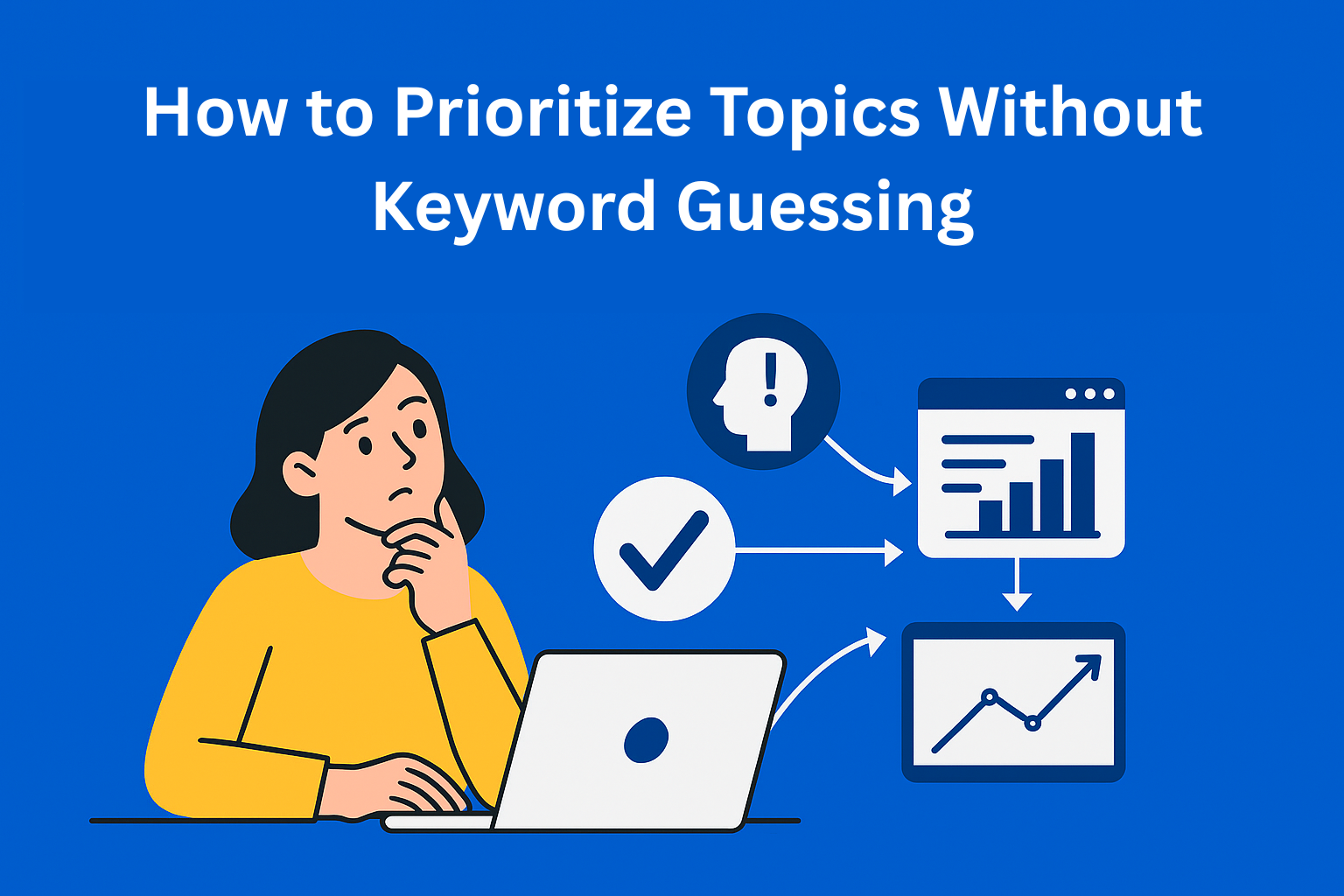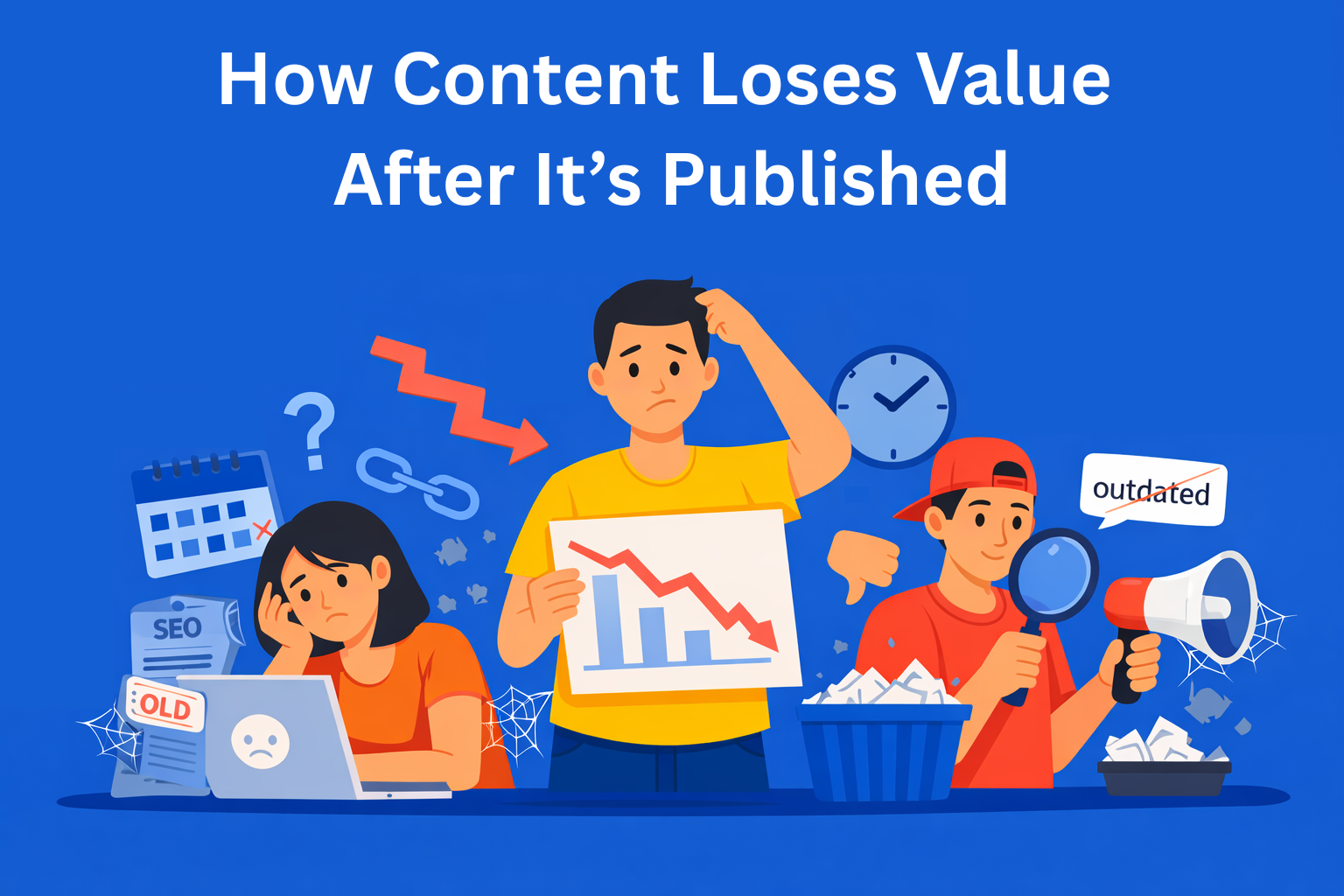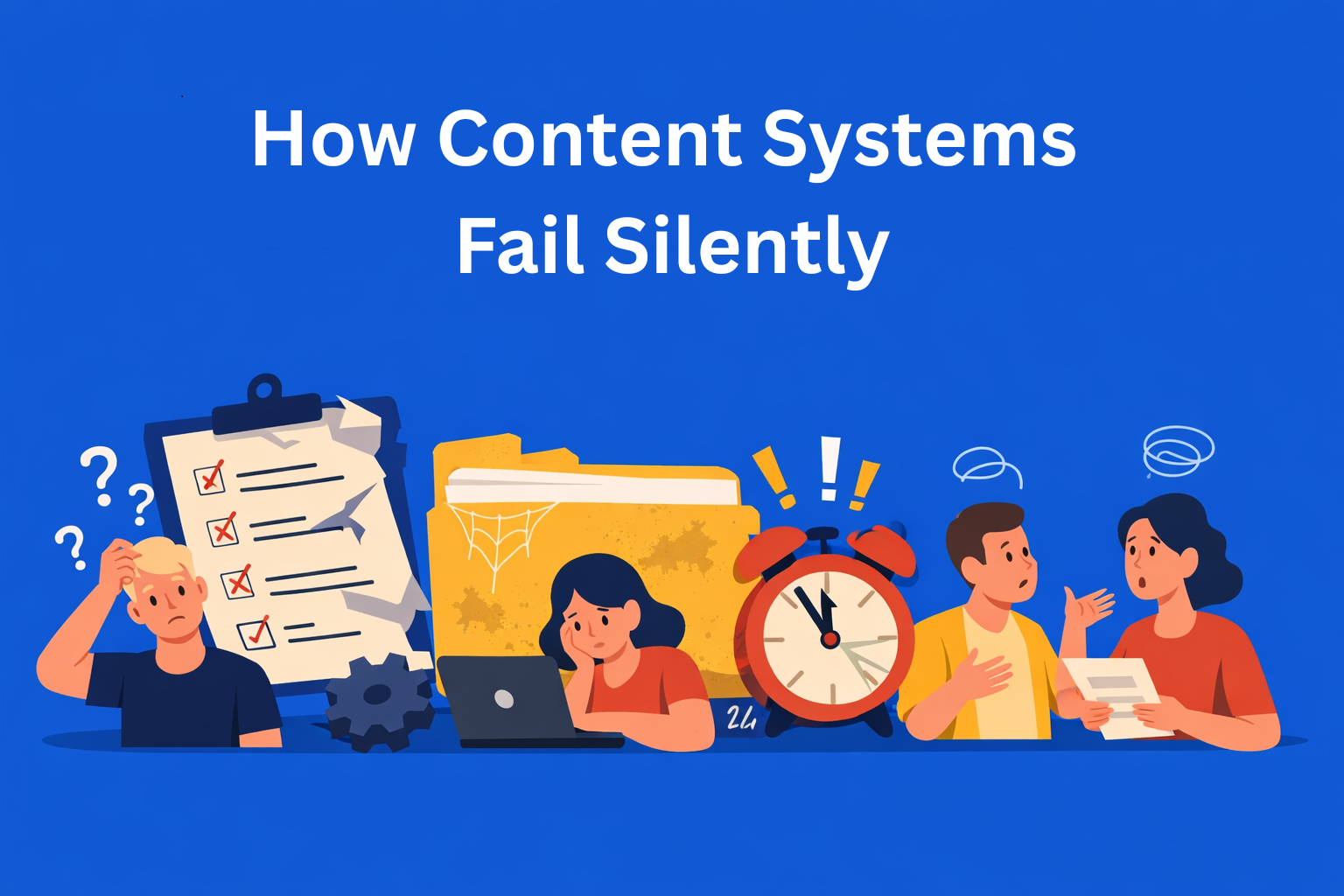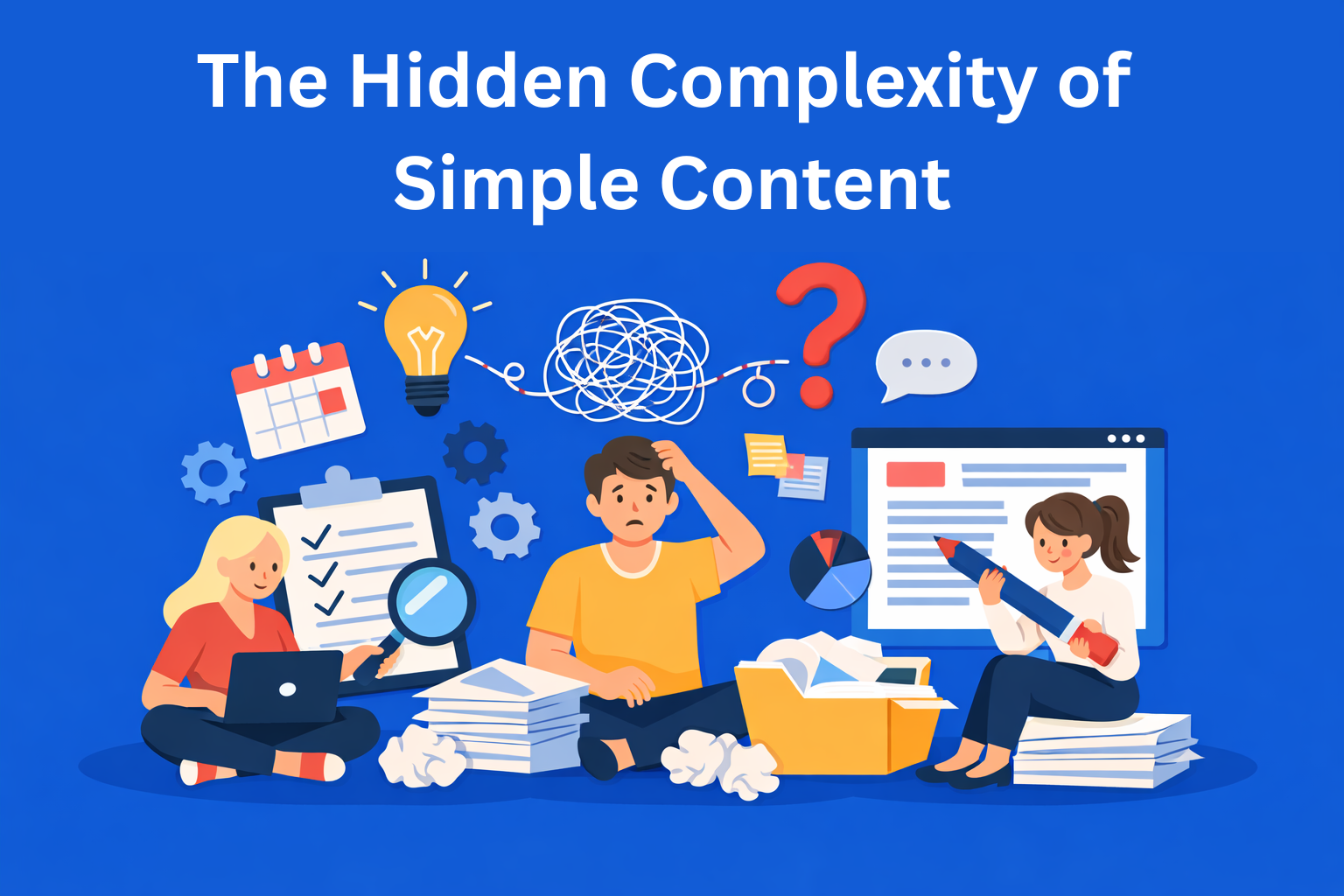How to Prioritize Topics Without Keyword Guessing
Stop relying on keyword tools that lag behind trends. Learn how to prioritize blog topics using intuition, audience insights, and real-time signals to stay ahead and create content that matters tomorrow, not yesterday.

If you create content, you’re probably used to opening a keyword research tool first, typing in some terms, and choosing topics based on search volume. Makes sense, right? More searches = more traffic. But here’s the catch: keyword tools often lag behind reality. By the time a tool shows that a phrase has huge search volume, the trend might already be fading.
The truth is, keyword research doesn’t always give you the right signal for what will matter tomorrow. If you’re always looking backward, you’ll rarely be the first to hit the next big thing. So, let’s explore how you can choose topics without keyword guessing, leaning more on intuition and context.
Key Takeaways
- Keyword tools look backward - They rely on historical data, making you late to emerging trends.
- Don’t compete where everyone else is - Unique insights and timing beat high-volume keywords.
- Watch real-time conversations - Monitor LinkedIn, Twitter/X, Reddit, and niche forums for early signals.
- Use intuition + context, then validate with data - Brainstorm first, confirm interest second.
- Prioritize by impact, effort, and timing - Leverage clustering and first-mover advantage to stay ahead.
Why Can’t You Rely Only on Keyword Tools?
There are a few big drawbacks when keyword research is your main guide:
- Data Lag: These tools track historical data. If a new trend emerges today, it might take months before the tools pick it up.
- Competition: Everyone using the same tools will come up with the same ideas. If you play the same game as everyone else, it’s hard to stand out.
- Lack of Context: A keyword doesn’t explain why the topic matters or what problems your audience truly faces.
If you want to lead instead of follow, you need to look beyond search volume.
How to Spot Great Topics Without Keyword Tools?
If we’re not starting with keyword research, where do we begin? Here are a few practical tips:
- Follow the Industry in Real-Time: Plug into platforms like Twitter/X, LinkedIn, or Reddit. That’s where conversations start before they hit the mainstream.
- Listen to Your Audience: Questions in comments, group discussions, Quora threads - this is gold. People openly share their pain points there.
- Leverage Your Expertise: What can you write about from a perspective others don’t have? Original insight beats any keyword.
- Think Ahead: Ask yourself - what’s going to matter in 3 months? If you know new regulations are coming, a product launch is near, or an industry shift is brewing, write about it now.
Intuition + Data: Finding the Balance
This doesn’t mean ignoring data completely. The goal is for intuition to spark the idea and data to validate it. Here’s a simple process:
- Brainstorm topics that feel relevant.
- Validate with your audience: Are people already asking about this on social? Is there buzz?
- Prioritize by potential: If the topic can deliver value and isn’t mainstream yet, that’s a win.
This is a mix of creative and analytical thinking - much better than blindly chasing keyword volume.
Methods to Prioritize Topics Without Keyword Research
Got a list of ideas? Here’s how to choose what to tackle first:
- Topic Clustering: Group related ideas. If you see a cluster gaining traction online, that’s your sign.
- Impact vs. Effort Matrix: How important is the topic to your audience vs. how hard is it to produce great content? Focus on high-impact, moderate-effort topics.
- First-Mover Advantage: Cover things before they become hot. That gives you both SEO and authority benefits.
Conclusion: A New Content Strategy Mindset
Keyword tools aren’t the enemy, but they shouldn’t drive the car. If you rely only on them, you’ll always be a step behind. Combine intuition, knowledge, and real-world signals to stay ahead.
So next time you plan content, don’t start with a keyword tool. Instead, ask yourself: What will my audience care about three months from now? If you find that answer, you’re on the right path.






